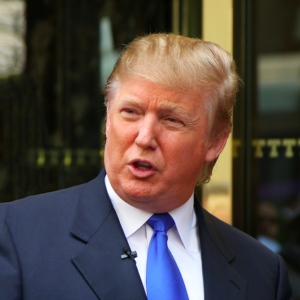As we continue through the Democratic primaries, and interesting and exciting fact has emerged — nearly every candidate supports higher taxes on the rich — yes, even mega-billionaire Michael Bloomberg, if we take him at his word.
That’s nothing to take for granted. Two years ago, calls to “tax the rich” were dismissed as foolish and even reckless. Conventional wisdom, and conventionally wise political advisers, warned that any talk of raising taxes on anyone would spell the end of a career. Now this three-word slogan is a rallying cry and we’re holding elected officials and candidates accountable to it.
But despite the growing demand for progressive taxation, Democratic presidential candidates are uncharacteristically quiet on one key point: that the fight for a fairer tax code must begin with fully repealing the 2017 Tax Cuts and Jobs Act.
While some presidential candidates have proposed killing parts of the law, only a full repeal will do. The Trump tax scam was destructively expansive — lowering corporate tax rates, creating giveaways for gentrifying developers in the form of “opportunity zones,” broadening the estate tax exemption to a level that effectively eliminated it, and more.
It took an already unequal tax system and added fuel to the fire, growing America’s wealth gap substantially. There are no tweaks or patches that will make this right.
Calling for a wealth tax or an increased top marginal tax rate is certainly something to be applauded, but in order for these proposals to make a substantial impact on the ever-growing inequality in our country, they need to be paired with a simultaneous repeal of the disastrous Trump tax law.
The Trump administration and the GOP are still trying to claim that their tax law helped workers, despite all evidence to the contrary, and as long as the law stands, they will take any signs of economic prosperity and untruthfully claim it as an outcome of their tax law. We can’t allow them to keep pretending that this full-fledged scam helped the middle class. No matter what they claim, the goal of this law was to put more money directly in the pockets of the wealthiest.
The day that he voted for this bill, Republican Congressman Vern Buchanan of Florida went out and bought himself a yacht. That was what the GOP tax scam was meant to do, and that’s who it was written to help.
Thanks to this scam, companies like Amazon are able to get away with paying absolutely nothing in federal income taxes, while pocketing billions of dollars in profits. A recent report from Fair Tax Mark cautioned that Amazon is “growing its market domination across the globe on the back of revenues that are largely untaxed.”
And not just Amazon — the Trump tax law also allows companies like Delta Airlines, Eli Lilly and Chevron (and 88 others) to pay zero dollars in federal income taxes in 2018, while 53 percent of working- to middle-class families will find themselves paying more in taxes thanks to the same law.
As the GOP tax law gifted these companies massive tax breaks, workers’ wages have stagnated. In fact, 44 percent of American workers are reported to be making just $18,000 a year — thousands lower than the federal poverty line for a family of four. Most of these underpaid workers aren’t college students looking to earn some extra cash to purchase books; they are adults in their prime working years forced to work multiple low-wage jobs to take care of themselves and their families.
So, why aren’t Democratic presidential candidates calling for a full repeal of this disastrous law?
While some Americans received a tax cut during the 2018 filing season, it was nowhere enough to substantially improve their lives. The Institute on Taxation and Economic Policy warns, “The few provisions that targeted working families weren’t ambitious enough to make a notable difference for most working families.”
This isn’t lost on the public, who remain opposed to the law, with few Americans believing that it has had a positive effect on their lives or the economy.
In 2020, presidential candidates will have the opportunity to reimagine an economy that works for all of us — that fundamentally begins with repealing the Trump tax law.

